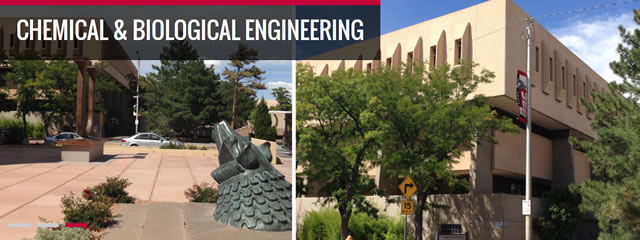
Chemical and Biological Engineering ETDs
Publication Date
1-30-2013
Abstract
The effect of surface roughness on the load capacity and friction force of hydrodynamic bearings has received considerable interest from scientists and engineers. Surfaces of most engineered materials are textured at some level either deliberately to achieve some desired effect or produced by wear and friction of surfaces. This thesis analyses the effect of surface roughness and porosity on the load capacity of hydrodynamic bearings. The surface roughness is characterized by a single sinusoidal wave function. The implementation of sinusoidal roughness model is verified using a verification problem. Reynolds lubrication theory, derived from thin-region approximations of the Navier-Stokes equations, is used as the main tool for this study. The performance of a rough slider bearing is compared with a corresponding smooth slider bearing. The presence of roughness tends to increase the load capacity of a slider bearing at high amplitudes and low wavelengths. The level-set method is used to track interfaces for problems involving multiphase flow. In general, the results show that the surface roughness influences the pressure distribution and load capacity of bearings.'
Keywords
Hydrodynamic bearings, Load Capacity, Surface roughness, Lubrication theory; Frictional resistance (Hydrodynamics), Surface roughness., Bearings (Machinery)--Testing.
Document Type
Thesis
Language
English
Degree Name
Chemical Engineering
Level of Degree
Masters
Department Name
Chemical and Biological Engineering
First Committee Member (Chair)
Roberts, Scott
Second Committee Member
Petsev, Dimiter
Recommended Citation
Venkatakrishnan, Abishek. "Flow in thin regions bounded by structured and porous surfaces : applications to load bearings." (2013). https://digitalrepository.unm.edu/cbe_etds/40
